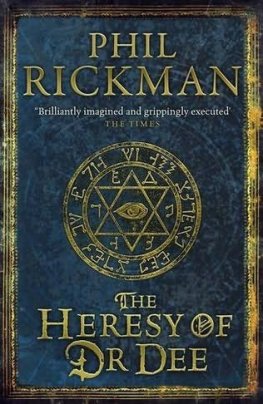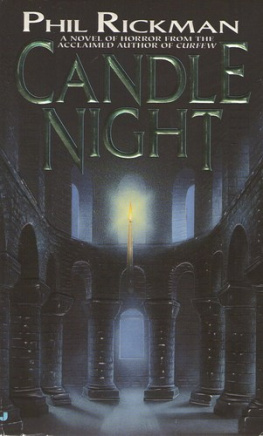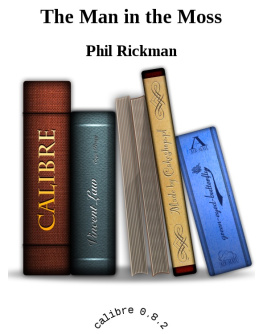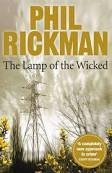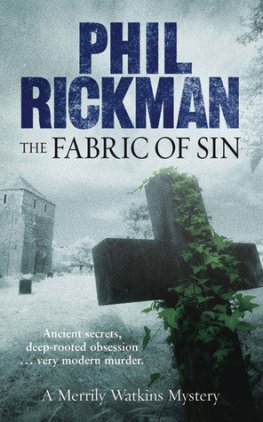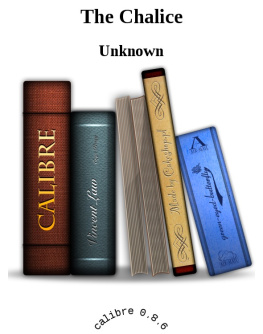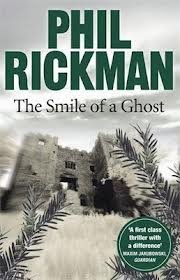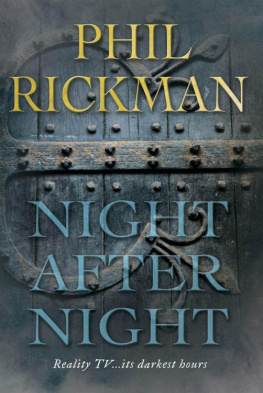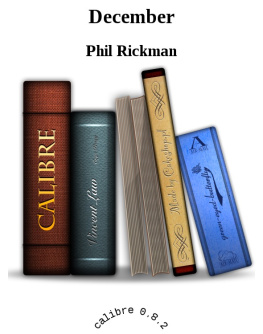Phil Rickman - Crybbe
Here you can read online Phil Rickman - Crybbe full text of the book (entire story) in english for free. Download pdf and epub, get meaning, cover and reviews about this ebook. genre: Detective and thriller. Description of the work, (preface) as well as reviews are available. Best literature library LitArk.com created for fans of good reading and offers a wide selection of genres:
Romance novel
Science fiction
Adventure
Detective
Science
History
Home and family
Prose
Art
Politics
Computer
Non-fiction
Religion
Business
Children
Humor
Choose a favorite category and find really read worthwhile books. Enjoy immersion in the world of imagination, feel the emotions of the characters or learn something new for yourself, make an fascinating discovery.

- Book:Crybbe
- Author:
- Genre:
- Rating:5 / 5
- Favourites:Add to favourites
- Your mark:
- 100
- 1
- 2
- 3
- 4
- 5
Crybbe: summary, description and annotation
We offer to read an annotation, description, summary or preface (depends on what the author of the book "Crybbe" wrote himself). If you haven't found the necessary information about the book — write in the comments, we will try to find it.
Crybbe — read online for free the complete book (whole text) full work
Below is the text of the book, divided by pages. System saving the place of the last page read, allows you to conveniently read the book "Crybbe" online for free, without having to search again every time where you left off. Put a bookmark, and you can go to the page where you finished reading at any time.
Font size:
Interval:
Bookmark:
Crybbe
Phil Rickman
PROLOGUE
In Crybbe, night did not fall.
Night rose.
It welled out of the bitter brown earth caged in brambles in the neglected wood beyond the churchyard, swarming up the trees until they turned black and began to absorb the sky.
Collecting the shadows of graves, the night seeped out of the churchyard and across the vicarage lawn, where Murray Beech stood, knowing he was the wrong vicar for this parish but not knowing there couldn't be a right one.
Murray, with a certain distaste, was wondering how you went about an exorcism.
In the centre of the town, patches of night gathered like damp about the roots of timber-framed buildings. They'd been turned into shops now, and offices and flats, but they still shambled around the square like sad old drunks.
Puddles of night stained the boots of Jack Preece, plodding across the cobbles to toll the curfew bell from the parish church, as he did every night and would go on doing until as, being a farmer, he expected arthritis got him and young Jonathon took over.
When Jack went to ring the old bell, he walked alone. Nobody else on the streets, the town holding its breath, even the sagging old buildings seeming to tense their timbers.
Nobody went into the Cock; nobody came out. Same with the Lamb down the street.
Tradition.
There was a passageway a few yards from the steps of the Cock, the pub's upper storey bellying out above it. This was another of the places where the night was born, and the only place from which, in the minutes before the curfew, you could sometimes hear distinct sounds: moans and squeals and panting.
Silly young buggers. To prevent this kind of thing, there used to be an iron gate across the passageway, with a lock. But when they turned the building at the bottom of the passage into a radio studio, they took the gate off.
This was a matter of some concern to the town council, of which Jack Preece was a member (his father, Jimmy Preece, was the Mayor), and negotiations were in hand with Offa's Dyke Radio and the Marches Development Board to get the gate replaced.
Why?
Same reason as old Percy Weale had given, back in the sixteenth century, for the institution of the curfew: to safeguard the moral welfare of the town.
What other reason could there be?
Minnie Seagrove, sixty three, a widow, had no doubts at all where the night began.
It began in that thing they called the Tump.
She could see it from the big front window of her bungalow on the Ludlow road. Nobody else could see it better.
Not that she wanted to. Ugly great lumps like this were ten a penny in the North and the Midlands where Mrs. Seagrove had lived. Only, in those areas, they were known as industrial spoil-heaps and were gradually removed in landscaping and reclamation schemes.
However, this thing, this Tump, wouldn't be going anywhere. It was protected. It was an Ancient Monument supposed to have been a prehistoric burial mound originally, and then, in the Middle Ages, there might have been a castle on top, although there were no stones there any more.
Mrs. Seagrove didn't see the point in preserving just a big, unpleasant hump with a few trees on top. It was obviously not natural, and if it was left to her, the council would be hiring Gomer Parry with his bulldozers and his diggers to get rid of it.
Because that might also get rid of the black thing that ran down from the mound in the twilight and scared the life out of Minnie Seagrove.
All right, she'd say to herself, I know, I know I could simply draw the curtains, switch on the telly and forget all about it. After all, I never noticed it not once when Frank was alive. But then, there didn't seem to be so many power cuts when Frank was alive.
How it came about, she was watching telly one night, coming up to News at Ten, and the power went off, and so she automatically went across to the window to see if the lights were on across the river, in the town.
And that was when she first saw it.
Horrible. Really horrible. It was well, it was like the night itself bounding down from the Tump and rushing off, hungry, into the fields.
But why can't you just stop looking? Why can't you stay well away from that window when it's going dark?
I don't know.
That's the really frightening thing. I don't know.
Yes, I do.
It's because I can feel when it's there. No matter what I'm doing, what's on telly or the radio or what I'm reading, ever since I first dashed to the window during that power cut, I've always known when it's on its way down from the mound. Without even going to the window, I know when it's there.
And the reason I look the reason I have to look, even though it scares me half to death is that I have to know, I have to be sure that it isn't coming this way.
Crybbe: a small one-time market town within sight of Offa's Dyke, the earthwork raised in the Dark Ages to separate England from Wales.
A town like a dozen others on either side of the border; less distinctive than most.
Except that here, the night rose.
PART ONE
Some persons have super-normal powers not of a magitien, but of a peculiar and scientific qualitie.
Dr John Dee, Letter to Lord Burghley, 1574CHAPTER I
Sometime and please, God, make it soon they were going to have to sell this place. And on evenings like this, when the sky sagged and the bricks of the houses across the street were the colour of dried blood, Fay would consider how they'd have to bait the trap.
On a fresh page of the spiral-bound notepad, she wrote:
FOR SALE
Bijou cottage in small, historic town amid spectacular
Welsh border scenery. Close to all amenities, yet with lovely open views to rear, across pastoral countryside towards Offa's Dyke. Reasonably priced at
what? You couldn't make it too cheap or they'd be suspicious and with good reason.
She'd suggest to her dad that they place the ad in the Sunday Times or the Observer, under 'rural property'. These were the columns guaranteed to penetrate the London suburbs, where the dreamers lived.
They probably wouldn't have heard of Crybbe. But it did sound appealing, didn't it? Cosy and tucked away. Or, alternatively, rather mysterious, if that was what you were looking for.
Fay found herself glancing at the bookshelves. Full of illusions. She saw the misty green spine of Walking the Welsh Marches. The enigmatic Old Straight Track by Alfred Watkins. And the worst offender: J. M. Powys's The Old Golden Land, which suggested that the border country was full of 'secret doorways', through which you could penetrate 'ancient mysteries'. And lots of pictures taken through lenses coated with Vaseline and wishful thinking.
She would really hate doing this to somebody, selling the house and perpetuating the myth. But not as much as she'd hate having to stay here. And you couldn't let your conscience run away with your life, could you?
Anyway, there were some people like, say, the Newsomes who rather deserved what this town was doing to them.
'Off to the pub,' the Canon called merrily from the hall. 'Fay, can you hear me? I said, I'm off to the boozer.'
'OK, Dad.'
'Spot of social intercourse.'
'You'll be lucky.' Fay watched him stride past the window towards the town square. The old devil still looked deceptively fit for someone who, ever so slowly, was going mad.
He would put on a wonderful performance for the prospective purchasers, always assuming they caught him on one of his better days. That Santa Claus beard and the matching twinkle. They'd love him. More importantly, they'd trust him, the poor sods.
But before she could unleash this ample bundle of ecclesiastical charm on the punters, there was just one minor difficulty to overcome.
Font size:
Interval:
Bookmark:
Similar books «Crybbe»
Look at similar books to Crybbe. We have selected literature similar in name and meaning in the hope of providing readers with more options to find new, interesting, not yet read works.
Discussion, reviews of the book Crybbe and just readers' own opinions. Leave your comments, write what you think about the work, its meaning or the main characters. Specify what exactly you liked and what you didn't like, and why you think so.

